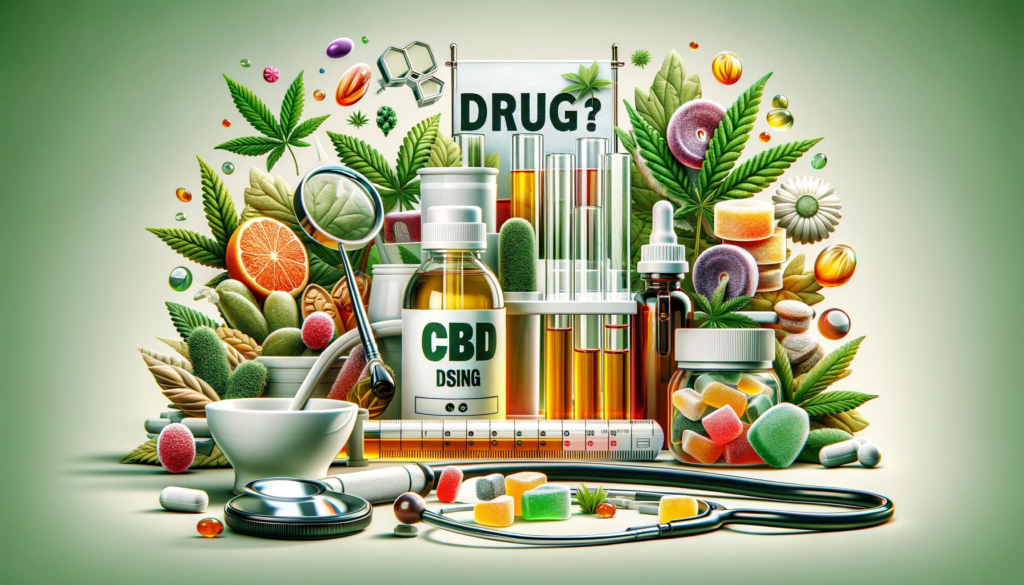Introduction
Cannabidiol (CBD), a non-psychoactive compound found in cannabis, has gained popularity in Canada for its potential health benefits. However, this rise in usage brings up questions about CBD’s interaction with drug testing, especially in workplaces or other scenarios where drug tests are common.
CBD in Canada
CBD is legal in Canada, governed by the Cannabis Act. Unlike THC, the psychoactive component in cannabis, CBD does not produce a ‘high.’ In Canada, CBD products, including oils, tinctures, and edibles, are widely available, both in legal cannabis stores and online.
How Drug Tests Work
Drug tests are designed to detect the presence of specific substances or their metabolites in a person’s body, indicating recent use of drugs or alcohol. Here’s a more detailed look at how drug tests work, particularly in the context of detecting substances like THC (the psychoactive compound in cannabis) as well as CBD:
Types of Drug Tests
- Urine Tests: The most common form of drug testing. They detect the presence of drugs and their metabolites in urine. These tests are relatively easy to administer and can detect drug use within the past few days to a week.
- Blood Tests: More invasive but can detect the actual presence of the drug in the bloodstream. They are more accurate in determining current impairment but have a shorter detection window than urine tests.
- Saliva Tests: Gaining popularity for their non-invasive nature. They can detect drug use within a few hours to a couple of days.
- Hair Follicle Tests: Can detect drug use over a longer period, typically up to 90 days. Drugs and their metabolites are deposited in the hair shaft from the bloodstream.
- Breath Tests: Primarily used for detecting alcohol consumption.
Detection Mechanism
- Metabolites: Drug tests usually detect not the drug itself but its metabolites – substances formed when the body metabolizes the drug. For instance, THC-COOH is a metabolite of THC.
- Threshold Levels: Most tests have a cutoff level. This means they only signal a positive result if the amount of the drug or its metabolites in the sample exceeds a certain threshold, reducing the chances of false positives from very minute traces of a substance.
Specificity to THC and CBD
- THC Detection: Drug tests in environments that screen for cannabis use are typically looking for THC or its metabolites. THC is fat-soluble, meaning it can stay in the body’s fat cells for extended periods, influencing how long it remains detectable.
- CBD and Drug Tests: Pure CBD is not usually detected by standard drug tests because these tests are not designed to look for CBD. However, if a CBD product contains THC (especially in full-spectrum CBD products), there is a risk of a positive test for THC.
Factors Influencing Test Results
- Dosage and Frequency of Use: Higher doses and more frequent use of a substance can lead to longer detection windows.
- Metabolism and Body Composition: Individual metabolic rates and body fat percentage can affect how long a drug stays in the system.
- Test Sensitivity and Specificity: Different tests have varying levels of sensitivity and specificity, influencing their ability to detect particular substances and the likelihood of false positives or negatives.
Challenges and Considerations
- Cross-Reactivity: Sometimes, substances with a chemical structure similar to the targeted drug can cause false positives. This is more common in less specific tests like immunoassay screenings.
- Legal and Ethical Considerations: The legality and ethical implications of drug testing, particularly for substances like CBD, which are legal in many regions, are complex and evolving.
Does CBD Show Up on a Drug Test?
CBD itself typically does not show up on a standard drug test, as these tests are designed to detect THC (tetrahydrocannabinol), the psychoactive compound in cannabis, not CBD (cannabidiol). However, the complication arises from the fact that some CBD products may contain trace amounts of THC, particularly if they are full-spectrum products derived from the cannabis plant.
These trace levels of THC can potentially lead to a positive drug test result, especially if used in large quantities or over an extended period. The likelihood of testing positive for THC due to CBD use depends on the product’s purity, the amount consumed, the sensitivity of the test, and the individual’s metabolism. Consumers seeking to avoid THC entirely should opt for broad-spectrum or isolate CBD products, which are typically free from THC.
Risks with CBD Products
The increasing popularity of CBD products has brought with it a range of potential risks, primarily due to the lack of regulation in some markets and the variability in product quality. Here are some key risks associated with CBD products:
- Mislabeling and Inaccurate CBD Content: Some CBD products may not contain the amount of CBD they claim. This mislabeling can lead consumers to ingest higher or lower doses than intended, affecting the efficacy and safety of the product.
- Presence of THC: Even though CBD is non-psychoactive, some CBD products, especially full-spectrum varieties, may contain trace amounts of THC. This could lead to unexpected psychoactive effects or a positive result on a drug test.
- Contaminants: CBD products may be contaminated with harmful substances like pesticides, heavy metals, or solvents, depending on how the cannabis plants were grown and processed. Such contaminants can pose significant health risks.
- Interactions with Medications: CBD can interact with certain medications, altering their effectiveness or leading to adverse effects. It’s important to consult with a healthcare provider before using CBD, especially for individuals taking prescription medications.
- Unproven Health Claims: Some manufacturers make unsubstantiated health claims about CBD’s effectiveness in treating various ailments. These claims are often not supported by scientific evidence, leading to misinformation and potentially dangerous expectations.
- Quality Control Issues: Due to the relatively new and unregulated nature of the CBD market, there can be significant variability in the quality and consistency of products, making it difficult for consumers to know what they are really getting.
- Legal Risks: The legal status of CBD varies by jurisdiction, and in some places, possession or use of CBD products can have legal consequences, particularly if the products contain THC levels above the legal threshold.
To mitigate these risks, consumers should purchase CBD products from reputable sources, check for third-party lab testing results, and consult healthcare professionals for advice on usage, especially when concerning potential interactions with other medications or health conditions.
Legal and Workplace Considerations
Legal and workplace considerations surrounding the use of CBD products are important areas of concern, especially given the evolving legal landscape of cannabis-related products. Here are some key points to consider:
Legal Considerations
- Regulatory Status: In many regions, CBD derived from hemp is legal, but the legal status can vary greatly depending on the country or state. It’s crucial to understand the local laws regarding CBD.
- THC Content: Legal thresholds for THC content in CBD products differ by jurisdiction. Exceeding these limits can lead to legal issues, even if the product is labeled as CBD.
- FDA Regulations: In regions like the United States, the Food and Drug Administration (FDA) has specific regulations regarding the marketing and sale of CBD products, especially those claiming health benefits.
- Transportation and Travel: Caution should be exercised when traveling with CBD products, as legal status varies between regions, and crossing borders with CBD can sometimes lead to legal complications.
Workplace Considerations
- Drug Testing Policies: Employers may have policies against the use of psychoactive substances. Since some CBD products may contain trace amounts of THC, there’s a risk of testing positive in a drug test.
- Disclosure and Dialogue: Employees who use CBD for medical reasons might consider disclosing this to their employer, especially in workplaces with strict drug policies. This can help in addressing any concerns proactively.
- Impairment Concerns: While CBD is not psychoactive, employers might have concerns about potential impairment, especially with products that have trace THC levels. It’s important to understand how CBD affects you personally, particularly in relation to job performance.
- Legal Protections: In some jurisdictions, employees using CBD for medical purposes may have certain legal protections. However, this is highly dependent on local laws and the specific circumstances of use.
- Company Culture and Perception: The perception of CBD use in a workplace context can vary. In some industries or companies, there might be more acceptance, while in others, there could be misconceptions and stigma associated with any cannabis-derived product.
Overall, both legal and workplace considerations require a thorough understanding of the local laws, workplace policies, and the specific attributes of the CBD products being used. It’s advisable to stay informed and exercise caution, especially in environments with strict drug use policies or in regions with ambiguous legal statuses for CBD.
Conclusion
While CBD itself should not show up on a drug test, the potential for THC contamination in CBD products makes this a gray area in Canada. Consumers should exercise caution, opt for products with clear labeling, and be aware of the legal and workplace policies relevant to drug testing.

